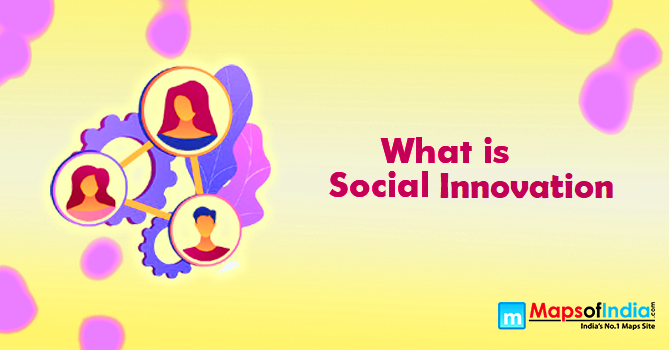India is the world’s third-largest start-up ecosystem. It is not restricted to large metros as nearly 20% of existing start-ups have been set up in Tier II and III cities. Knowing the fact, India is a unique kaleidoscope of geographical and human diversity that is gradually moving towards monumental socio-economic transformation and indicating globalization in a largely agrarian country. To accelerate its growth, the need for social innovation has expanded across the country.
Social innovation aims for any solution that meets a social or environmental issue, develops social relationships in the process, and enforces new kinds of collaborations. The innovations could range from products and services to models that address the community’s unmet needs in an effective way by transforming people’s lives.
It helps to resolve some of the world’s most pressing issues with new solutions such as remote learning, fair trade, mobile money transfer, restorative justice and zero-carbon housing. While in the process of working on solutions, it is also thoroughly making shifts in beliefs, basic practices, resources, and social power structures.
It offers a unique opportunity to withdraw from a narrow way of contemplating social enterprises, business engagement and philanthropy and emphasis to recognize instead the interconnectedness of numerous factors and stakeholders.
Social innovation is further important because it addresses and finds out innovative approaches amidst the rising societal challenges such as poverty, hunger, climate change, violence, discrimination and racism. Examples:
- Rising life expectancy is a challenge that requires a new way for pension systems and mutual support to tackle the isolation crisis.
- Climate change is an issue that one can’t wait to put it on hold as it is affecting a large number of people. This requires creative and responsible approaches to revamp big cities’ landscapes and our habits of moving and consuming, which could lower the carbon footprint.
- The increasing number of long-term medical conditions such as depression, diabetes or heart problems need technical and social innovations in the form of new medical care systems and processes.
The significance of social innovation lies in providing huge opportunities in the following areas:
- Technology: Every day new products are coming out, which are trying to alleviate the quality of life or health. Poverty and hunger are primary areas in this with a focus on.
- Collaboration of communities: Social innovation calls for moving together and joining forces for different sectors to get solutions together, not individually.
- Knowledge Sharing: Social Innovation gives an opportunity to take benefit of that for assessing and measuring the results of the projects.
Various social start-ups in their early stages have been aided to create an impact while scaling up. Some of those included are:
- Aarogya Foundation, which has developed an inexpensive, easy-to-use screening tool based on data science and Artificial intelligence (AI). The startup is working towards solving late detection and poor awareness of cancer in India.
- LevelUp leverages the smartphone to bring inaccessible knowledge for visually impaired students from grade 8 to grade 12. They address the challenges by converting a printed book into audio without the need to convert it into braille.
Moreover, a social entrepreneur dealing with any societal issue comes up with solutions that promote dignity and involve the addressed community in the process, which then realises the significance of social innovation.




